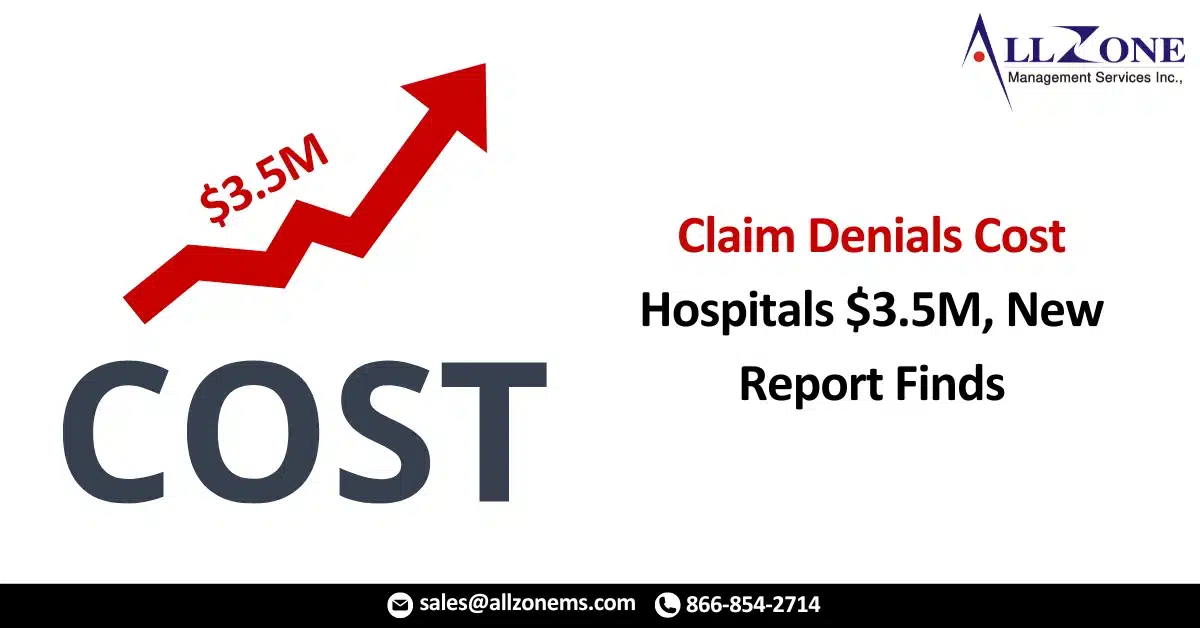Hospital and health systems have seen an improvement in some aspects of revenue cycle performance over the last two years, but a new report finds that many organizations are under pressure and face risks from increased denial write-offs, bad debt and inefficiencies due to high collection costs.
Indeed, the Advisory Board’s biennial revenue cycle survey finds that a median 350-bed hospital would have lost $3.5 million to increased denial write-offs from healthcare payers over the past four years. The District of Columbia-based consulting firm surveyed senior acute care hospital and health system executives at 90 organizations, mostly nonprofits, and also used data from nearly 300 organizations to compile the report.
“Hospitals are facing a combination of reimbursement pressure and a recent acceleration in costs that has outpaced revenue growth, so institutions need to ensure they are receiving payment commensurate with the services they deliver,” said Jim Lazarus, national partner, technology at Advisory Board, in an announcement.
The report shows hospitals had mixed results across four critical performance indicators. Among the most notable findings:
Hospitals Face More Denials Than Ever Before:
Hospitals wrote off as uncollectable 90% more denials than six years ago, a difference of $3.5 million for a median 350-bed hospital, according to the report.
The Advisory Board found that the median for successful denial appeals for hospitals fell from 56% to 45% for commercial payers over the past two years and from 51% to 41% for Medicaid. Medicare and Medicare Advantage, the rate of successful hospital appeals increased from 50% to 64%. The firm believes that hospitals and healthcare systems will continue to face more denials because they are based on medical necessity, rather than technical or demographic errors.
“With denials volume increasing not just for commercial payers but especially for Medicare Advantage, health systems need strategies to address denials proactively,” James Green, national partner, consulting at Advisory Board, in a statement. “Appeals are becoming increasingly difficult, so health systems should focus on approaches such as improved documentation and authorization processes.”
But Healthcare Organizations Report Better Cash Flow:
The good news for hospitals and health systems is that the median performance for net accounts receivable days improved by 8% from 2015 to 2017 (and by 21% since 2006). But the report said that the gains may be partially due to write-offs and other factors that could reduce accounts receivable but pose other challenges for healthcare organizations.
A Drop In Bad Debt Is Offset By Higher (And Unpaid) Patient Deductibles:
Hospitals in states with Medicaid expansion were able to reduce bad debt, the report found. But an increase in high-deductible health plans has led to more instances of unpaid patient obligations across all states, regardless of whether the state had Medicaid expansion. The Advisory Board said the findings indicate that healthcare organizations must increase their focus on patient collections, especially at the point of service (POS).
The report found that the median for collections at POS has risen from 0.24% of net patient revenue to 0.80% over the past six years. For a 350-bed hospital, this is equivalent to increasing collections from $800,000 to almost $3 million. The survey indicated that organizations able to collect a higher percentage at POS tend to offer patient discounts for full payment upfront, resulting in a 90% increase in POS collections compared to organizations that do not.
Healthcare Organizations Are Missing Opportunities To Drive Down Costs:
Although the median costs to collect remained flat at 3% over the past five years, they are still higher than historical benchmarks from six years ago, according to the report. The firm said that its especially important that organizations work to drive down these costs because of softening hospital margin trends in the past 12 months. Furthermore, the report found that despite more mergers and consolidations, many hospital systems haven’t taken advantage of centralizing revenue cycle functions, and are likely missing opportunities to drive down costs and capitalize on knowledge and information sharing across facilities.
For more information: Increased claim denials cost hospitals as much as $3.5M

